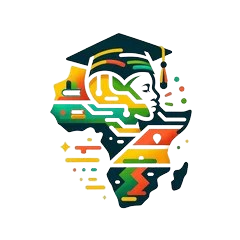Africa is a continent undergoing digital transformation, where access to education remains a major challenge, particularly in rural areas. The lack of school infrastructure, the shortage of qualified teachers, and the disparity in access to educational resources hinder the democratization of knowledge. However, with the rapid rise of mobile technologies, an innovative solution emerges: mobile learning. Indeed, the penetration rate of mobile phones in Africa is among the highest in the world, making smartphone-based learning a credible alternative to traditional methods. But is mobile learning really the key to the educational revolution in Africa, or does it remain a temporary solution facing structural limitations?
Mobile Learning: An Unprecedented Opportunity for African Education
One of the main advantages of mobile learning lies in its accessibility. Unlike computers or tablets, which remain expensive for many African families, mobile phones are ubiquitous and represent the primary means of internet connection for most Africans. Thanks to mobile phones, students can access a variety of educational content through mobile apps, e-learning platforms, and even SMS or WhatsApp-based courses.
Initiatives like Eneza Education (Kenya) or Ubongo Kids (Tanzania) have already demonstrated the effectiveness of mobile learning. Eneza Education, for instance, offers interactive SMS-based courses adapted to school curricula, reaching thousands of children in rural areas. Similarly, Ubongo Kids uses educational videos accessible via mobile to teach mathematics and science in a fun way to young Africans. These solutions show that mobile learning not only expands access to education but also makes it more interactive and engaging.
Challenges of Mobile Learning in Africa
Despite its many benefits, mobile learning still faces several obstacles in becoming a viable educational model at scale. The cost of internet connectivity and mobile data remains a major barrier. Many students, although equipped with phones, cannot afford to download online courses or stream educational videos.
Another challenge is the quality and recognition of educational content. Unlike traditional education, where diplomas are recognized by academic institutions, certifications obtained through mobile platforms are not always validated by ministries of education. It is therefore essential for African governments and digital companies to collaborate in integrating mobile learning into official curricula.
Finally, the lack of teacher training in these new technologies presents an adoption problem at scale. For mobile learning to function fully, teachers must be trained in the use of digital tools and know how to integrate these resources into their teaching methods.
How to Make Mobile Learning Effective and Sustainable?
For mobile learning to become a real driver of educational transformation in Africa, policies promoting access to mobile technologies must be implemented. This includes reducing the cost of mobile data, establishing partnerships between governments and telecom operators, and developing appropriate infrastructure.
Governments must also recognize and regulate mobile-based training to ensure their quality and relevance. Integrating mobile learning into school curricula, combined with official certification systems, would make it a complementary and credible solution to the existing educational model.
Finally, it is crucial to involve teachers and parents in this digital transition. Training teachers in mobile learning tools and raising awareness among families about the importance of these new forms of learning will encourage broader and more sustainable adoption of this technology.
Conclusion
Mobile learning represents an exceptional opportunity for African education by providing broader and more flexible access to educational content. Through innovative initiatives and the widespread use of smartphones, it can reduce educational inequalities and improve learning for young Africans. However, for it to become a sustainable and effective solution, efforts are needed to reduce internet access costs, regulate digital certifications, and train teachers in these new tools. If these challenges are met, mobile learning could indeed be the key to the educational revolution Africa is waiting for.
Bibliography and References
-
Maidakouale, I., & Fagadé, C. (2021). Mobile educational applications in language learning: Representations and uses in the Francophone African context.
-
Ménascé, C. (2015). UNESCO's digital education projects in Africa.
-
Puimatto, G. (2017). Mobile learning: A look at some practices in Africa.
-
Remond, É., Useille, P., & Abba, H. (2015). The development of digital education in Africa: MOOCs through the lens of Jeune Afrique’s discourse.
-
Towa, M. (2016). Mobile learning or nomadic school for training trainers in the informal economy.
-
UNESCO. (2012). Mobile learning for teachers in Africa and the Middle East: Exploring the potential of mobile technologies to support teachers and improve practice.
-
Yeo, S., Kei, M., & N'guetta Kablan, B. (2022). Perceptions of mobile learning among students enrolled in the Master’s in Health Sciences Pedagogy at the Institute of Health Agents Training (INFAS) in Abidjan.


